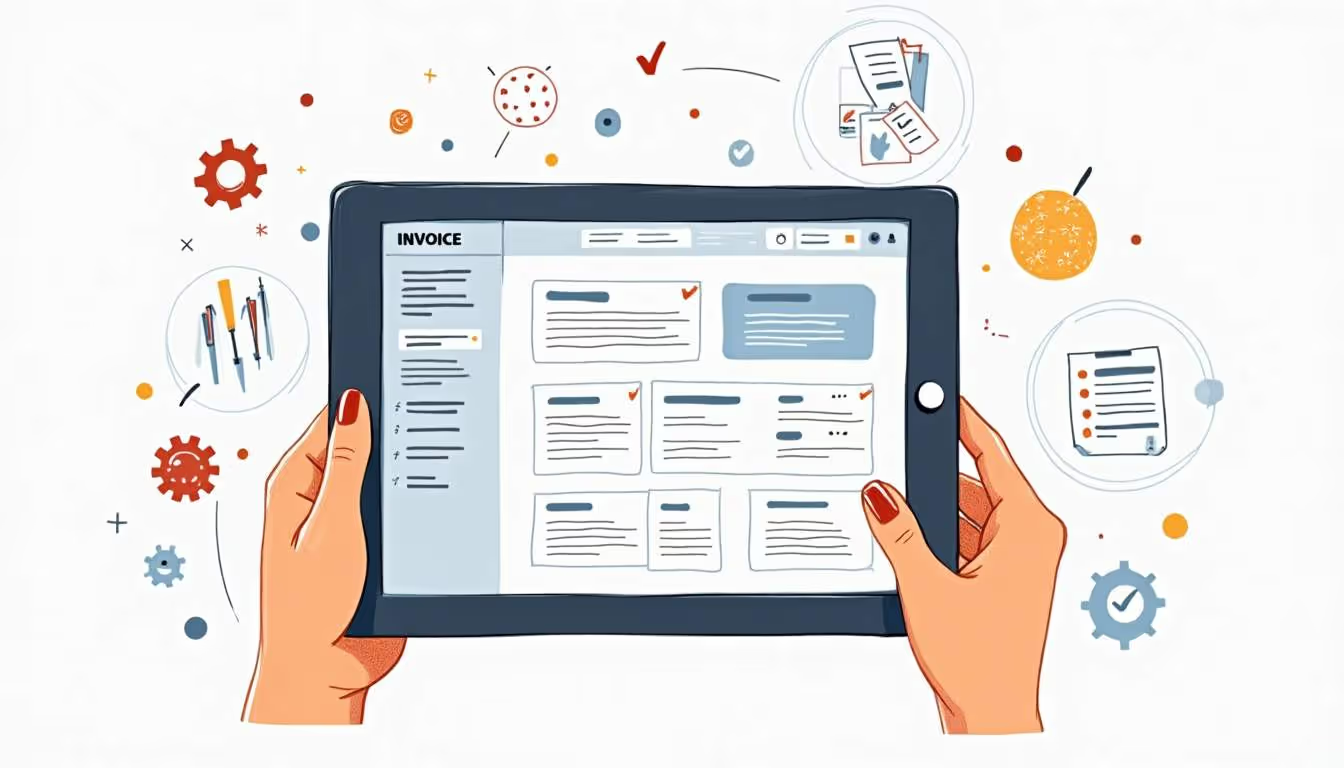Effective Strategies for Managing Late Payments and Past-Due Accounts
Managing late payments and past-due accounts is a crucial aspect of maintaining a healthy cash flow for any business. In an era where financial stability is paramount, understanding effective strategies to handle these issues can significantly impact a company’s bottom line. This article delves into various techniques and best practices that can help organizations minimize late payments and manage overdue accounts effectively.
Understanding the Importance of Timely Payments
Timely payments are the lifeblood of any business. They ensure that cash flow remains steady, allowing companies to meet their operational expenses, invest in growth, and maintain a positive relationship with vendors and employees. Late payments can lead to a domino effect, causing disruptions in service delivery, increased operational costs, and strained relationships with clients.
Moreover, the longer an account remains past due, the harder it becomes to collect the owed amount. Understanding the importance of timely payments is the first step toward developing effective strategies for managing late payments and past-due accounts. By fostering a culture of punctuality in payments, businesses can create a more reliable financial environment, which ultimately contributes to their sustainability and success.
In addition, timely payments can also enhance a company's creditworthiness. When businesses consistently pay their bills on time, they build a positive credit history, which can lead to better financing options and lower interest rates when seeking loans or lines of credit. This financial leverage can be crucial for expansion, allowing businesses to seize opportunities that arise in a competitive marketplace.
Consequences of Late Payments
Late payments can have severe consequences for businesses. They can lead to cash flow problems, which may hinder the ability to pay suppliers, meet payroll, or invest in new opportunities. Additionally, chronic late payments can result in increased administrative costs as staff spend time chasing overdue accounts.
Furthermore, businesses may also face reputational damage. Clients who consistently receive late payments may perceive a lack of professionalism, leading to a loss of trust and potential future business. This erosion of trust can extend beyond immediate clients; word of mouth can spread quickly, and a reputation for being unreliable can deter new customers from engaging with the business. In industries where relationships and trust are paramount, such as in professional services or B2B transactions, the impact of late payments can be especially pronounced.
Moreover, the psychological toll on employees should not be overlooked. When a company struggles with cash flow due to late payments, it can create an atmosphere of uncertainty and stress among staff. Employees may worry about job security or the company's financial health, which can lead to decreased morale and productivity. A stable financial environment, bolstered by timely payments, not only supports operational efficiency but also fosters a positive workplace culture where employees feel secure and valued.
Establishing Clear Payment Terms
One of the most effective ways to manage late payments is to establish clear payment terms from the outset. This includes defining the payment schedule, acceptable payment methods, and any penalties for late payments. By setting these expectations early, businesses can minimize confusion and disputes later on.
Communicating Payment Terms
Effective communication is key. Payment terms should be clearly outlined in contracts, invoices, and any other relevant documentation. It’s also beneficial to discuss these terms directly with clients to ensure they understand the expectations. This proactive approach can help prevent misunderstandings that may lead to late payments.
Incentives for Early Payments
Offering incentives for early payments can be an effective strategy to encourage clients to pay on time. This could include discounts for early settlement or loyalty rewards for consistent timely payments. Such incentives not only promote prompt payment but also strengthen client relationships by showing appreciation for their business.
Implementing a Robust Invoicing System
A well-organized invoicing system is essential for managing payments effectively. An efficient invoicing process ensures that invoices are sent promptly and accurately, reducing the likelihood of disputes and delays.

Automating Invoicing Processes
Automation can significantly enhance the efficiency of the invoicing process. Utilizing software that automates invoice generation, sending, and tracking can save time and reduce human error. Automated reminders for upcoming due dates can also prompt clients to make payments on time.
Regularly Reviewing Invoices
Regular reviews of outstanding invoices can help identify patterns in late payments. By analyzing which clients frequently pay late, businesses can tailor their approaches to address specific issues. This proactive analysis can lead to improved cash flow management and more effective collection strategies.
Effective Communication with Clients
Maintaining open lines of communication with clients is vital for managing late payments. A friendly yet firm approach can help in addressing overdue accounts without damaging the relationship.

Setting Up Reminder Systems
Implementing a reminder system can be beneficial. Sending reminders a few days before the payment due date can prompt clients to prepare for payment, while follow-up reminders after the due date can serve as a gentle nudge without being overly aggressive.
Personalized Communication
Personalizing communication can also enhance client relationships. Tailoring messages to individual clients can make them feel valued and understood, increasing the likelihood of timely payments. This could involve acknowledging their business challenges or expressing appreciation for their partnership.
Negotiating Payment Plans
In some cases, clients may genuinely struggle to meet payment deadlines due to financial difficulties. In such situations, negotiating a payment plan can be a win-win solution. This allows clients to manage their cash flow while ensuring that businesses still receive the payments owed.
Assessing Client Financial Situations
Before proposing a payment plan, it’s essential to assess the client’s financial situation. Understanding their challenges can help in crafting a plan that is realistic and mutually beneficial. This may involve discussions about their cash flow cycles and any potential changes in their business operations.
Documenting Agreements
Once a payment plan is agreed upon, it is crucial to document the terms clearly. This documentation should outline the payment amounts, due dates, and any penalties for missed payments. Having a formal agreement helps protect both parties and provides a reference point for future discussions.
Utilizing Collection Agencies
When internal efforts to collect overdue payments fail, engaging a collection agency may be necessary. While this step can be daunting, it can also be an effective way to recover funds that are otherwise lost.
Choosing the Right Collection Agency
Not all collection agencies are created equal. It’s essential to choose an agency that aligns with your business values and understands your industry. Researching their reputation, success rates, and methods of operation can help ensure that they will represent your business professionally.
Understanding the Costs Involved
Utilizing a collection agency comes with costs, typically a percentage of the amount collected. Businesses should weigh these costs against the potential recovery of overdue accounts. In some cases, the expense may be justified, especially for larger outstanding amounts.
Leveraging Technology for Better Management
In today’s digital age, technology plays a significant role in managing late payments and past-due accounts. Utilizing software solutions can streamline processes and enhance overall efficiency.
Accounting and Financial Management Software
Investing in robust accounting and financial management software can provide businesses with the tools needed to track invoices, payments, and outstanding accounts effectively. These systems often include features such as automated reminders, reporting, and analytics, which can aid in decision-making.
Customer Relationship Management (CRM) Tools
CRM tools can also be beneficial in managing client relationships and payment histories. By tracking interactions and payment behaviors, businesses can tailor their approaches to individual clients, fostering better communication and reducing late payments.
Fostering Strong Client Relationships
Building strong relationships with clients is one of the most effective strategies for ensuring timely payments. When clients feel valued and respected, they are more likely to prioritize payments.

Regular Check-Ins
Regularly checking in with clients can help maintain a positive relationship. This can involve casual conversations about their business needs or discussing how your services can continue to support them. Such interactions can reinforce the partnership and encourage timely payments.
Providing Exceptional Service
Delivering exceptional service is another way to foster strong client relationships. When clients are satisfied with the quality of service they receive, they are more inclined to prioritize payments. This includes being responsive to their needs, addressing any concerns promptly, and consistently delivering value.
Training Staff on Payment Management
Training staff on effective payment management strategies is essential for ensuring consistency and effectiveness in handling late payments. A well-informed team can make a significant difference in how payment issues are addressed.
Developing Standard Operating Procedures
Creating standard operating procedures for payment management can provide staff with clear guidelines on how to handle late payments. This includes steps for communication, negotiation, and escalation when necessary. Having a structured approach can lead to more effective outcomes.
Encouraging a Proactive Mindset
Encouraging staff to adopt a proactive mindset when it comes to payment management can also be beneficial. This involves being vigilant about tracking payments, identifying potential issues early, and taking action before problems escalate. A proactive approach can help maintain cash flow and minimize overdue accounts.
Conclusion
Managing late payments and past-due accounts is a multifaceted challenge that requires a combination of strategies, effective communication, and strong client relationships. By implementing clear payment terms, utilizing technology, and fostering a proactive approach, businesses can significantly reduce the incidence of late payments and improve their overall financial health.
Ultimately, the goal is to create a system that not only encourages timely payments but also strengthens client relationships, ensuring long-term success for both parties. By prioritizing effective payment management strategies, businesses can navigate the complexities of cash flow and maintain a thriving operation.








